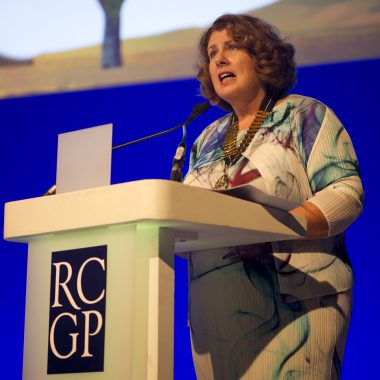Exclusive The RCGP has banned companies who recruit UK GPs to positions overseas from running exhibition stalls at its annual conference, going so far as to cancel those already booked in.
Canadian recruitment company Health Match BC told Pulse that the RCGP contacted them last week (11 March) to inform them that ‘with apologies’ they would no longer be able to attend the conference. According to the company, the RCGP said this was due to a recent change in its policies so as to not contradict efforts to tackle the UK’s ongoing workforce crisis.
Yvonne Attwood office manager at Health Match BC told Pulse: ‘We just got an email this morning telling us that the College had a new policy, that they didn’t want doctors to leave the UK and that they were cancelling our registration with apologies.’
‘We do understand, but we’ll probably just advertise [instead]. The GPs can still come to us, we go to other conferences in the UK as well.’
RCGP chair Dr Maureen Baker confiermed to Pulse that all such companies have in fact been banned from the conference. She said that given the shortage of GPs in the UK at present, it was ‘inappropriate’ for the college to be ‘providing a platform’ for companies advertising overseas vacancies.
She said: ‘The RCGP Annual Primary Care Conference is our flagship event and showcases the many and diverse opportunities to improve patient care that are offered by a career in general practice. We thought it was inappropriate that at a time when we have a severe shortage of GPs across the UK, the RCGP should be providing a platform for companies to advertise overseas vacancies.
‘The event attracts thousands of GPs and primary care professionals every year. This year’s event in Glasgow will be an excellent opportunity to demonstrate what we are doing to increase the general practice workforce in the UK by retaining our existing GPs, recruiting new doctors into general practice, and making it easier for trained GPs to return to practice after a career break.’
According to its website, Health Match BC is a ‘free health professional recruitment service funded by the Government of British Columbia, Canada’ which, since 1999, has ‘successfully recruited thousands of Canadian and internationally educated health professionals to BC’.
A recruitment video on their website features UK GP Dr Marie Claire-Hopwood who says: ‘I’m from Sheffield in the north of England and I came to BC five months ago. BC sounded perfect, I can go snowboarding in the winter, I can go mountain biking in the summer, and the weather’s always great.’
This comes as the RCGP recently launched its own recruitment video to promote the benefits of general practice to medical students.
The RCGP has worked with NHS England and the GPC on the £10 million recruitment, retention and retainers strategy which will push for an overhaul of the current returners and induction scheme to make returning to UK general practice easier.
It is also looking at schemes to allow GPs to stay on the UK performers list while working overseas in countries with a similar model of general practice, which would also make it easier to return.
However attempts to drive up recruitment of UK medical students to general practice have yet to have much impact, as the number of applications for the first round of GP training has falled for the second successive year.
Pulse also recently revealed that NHS England had been placing adverts for GPs to return to practice in the UK in Australian medical publications.
Pulse July survey
Take our July 2025 survey to potentially win £1.000 worth of tokens












